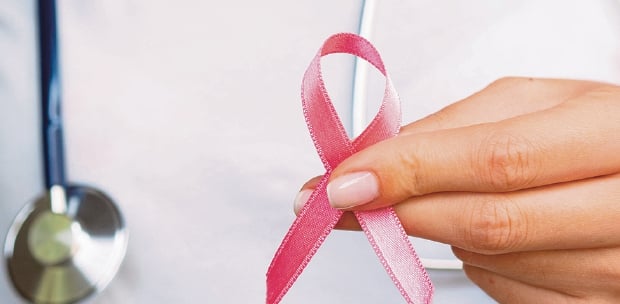TO cope with a cancer diagnosis is difficult at any age, but when cancer strikes in the prime of life, the challenges are magnified.
Colorectal cancer, once thought of as an elderly person's disease, is now affecting an increasing number of younger Malaysians.
It's now the most common cancer among Malaysian males and the second most common among females.
Pantai Hospital Kuala Lumpur consultant colorectal and general surgeon Dr Navinakathiresu Muthukumarasamy says the incidence of colorectal cancer in young people has been steadily increasing since 1995 and currently, almost 20 per cent of cases involve those below 50. Previously, the disease mainly affected those aged 60 and above.
Like most cancers, it has a link to diet and lifestyle, both of which are fuelling the numbers among young people.
"In the elderly group, the cases are actually reducing but we are seeing more cases among younger patients," says Dr Navinakathiresu.
A diet that's high in red meat, lacks fibre or includes more processed and preserved foods puts an individual at greater risk of acquiring colorectal cancer.
Those with inflammatory bowel disease also have a higher risk, such as people with Crohn's disease or ulcerative colitis.
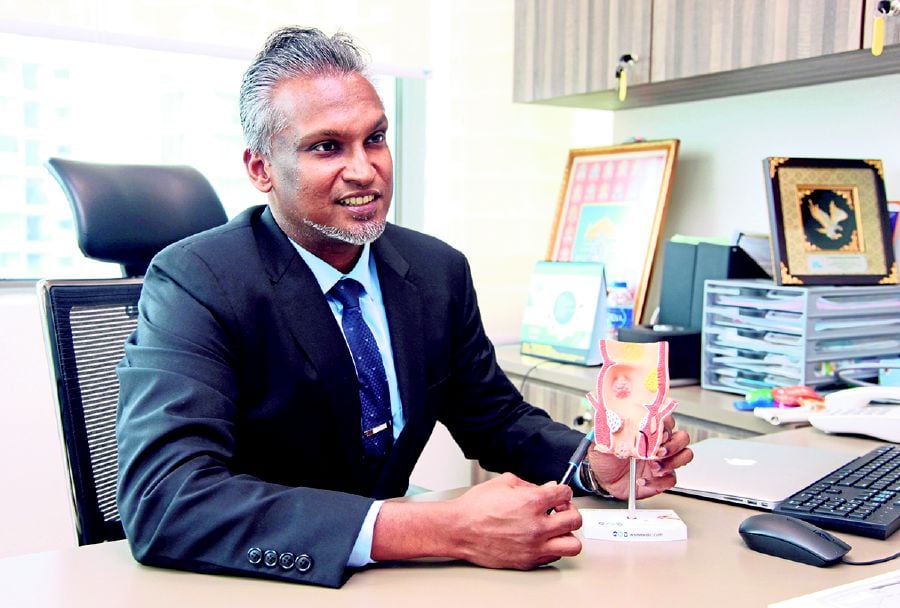
LIFESTYLE-RELATED
The lack of exercise and an overall sedentary lifestyle also increases the risk as does smoking and alcohol consumption.
Dr Navinakathiresu says patients who have personal history of other cancers have a higher risk of colorectal cancer as well.
Sporadic cases of colorectal cancer account for almost 80 per cent of all cases while 20 per cent is due to family history of the disease.
He adds that in Malaysia, numbers are highest among the Chinese, but Chinese patients tend to get the cancer at a later age compared with Indians and Malays, who are younger when they get the disease.
Very often, symptoms can be vague, causing patients to dismiss them.
"Abdominal bloating is one of the vague symptoms and many patients tend to ignore it or seek over-the-counter treatments."
Similarly, when these people find blood in their stools, they assume it's just haemorrhoids so their symptoms are not properly investigated.
"When they finally seek treatment, they are already in the late stages of the disease."
Most patients in the younger age group are being diagnosed at stages three or four, when treatment and surgery to manage their condition is more complex and the chances of survival reduced. In comparison, elderly patients are being diagnosed early.
"In younger patients, the cancer tends to be more aggressive and it can take a turn for the worse quite quickly. Surgery can also be very complex," says Dr Navinakathiresu.
Much of this can be addressed if there is greater awareness of the disease and its early symptoms.
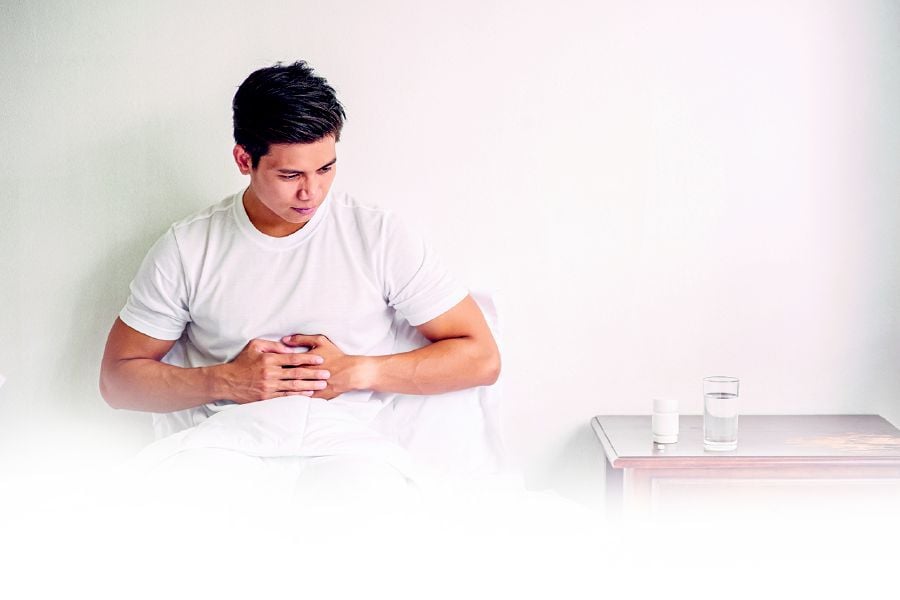
SCREENING
A colonoscopy remains the best way to screen for colorectal cancer.
Alternatively, patients can be screened using the faecal immunochemical test (FIT) or guaiac-based faecal occult blood test (gFOBT). Both tests are available at major hospitals and clinics.
Dr Navinakathiresu says if one tests positive, then a colonoscopy has to be done. But even if one is negative, it doesn't mean there's no colorectal cancer. If there are symptoms, it's best to seek expert advice.
"If you have a strong family history of colorectal cancer or have inflammatory bowel disease, you are in the high risk category and should get a colonoscopy done."
Generally, for those above 40, with no family history, screening is recommended once every five years.
Dr Navinakathiresu says those who have Lynch syndrome are advised to get a colonoscopy done every two years, from the age of 20, as their chances of getting the disease is almost 80 per cent.
Meanwhile, those with Familial Adenomatous Polyposis (FAP), an inherited disorder, have a 100 per cent chance of getting the disease by age 45. For these individuals screening needs to begin in their teenage years.
Not many people come without symptoms and ask for screening. They usually come with mild, overt symptoms before screening is done.
What's important is to not neglect the symptoms. Keep track of your bowel habits and seek treatment early if there are changes.
COLORECTAL CANCER
Soft/Vague Signs
• Bloatedness
• Lethargy
• Looking pale
Hard Signs
• Rectal bleeding
• Altered bowel habits (alternating between constipation and diarrhoea)
• Mucous in the stool
• Sensation of incomplete evacuation when passing motion
• Passing smaller amounts of stool but with more frequency
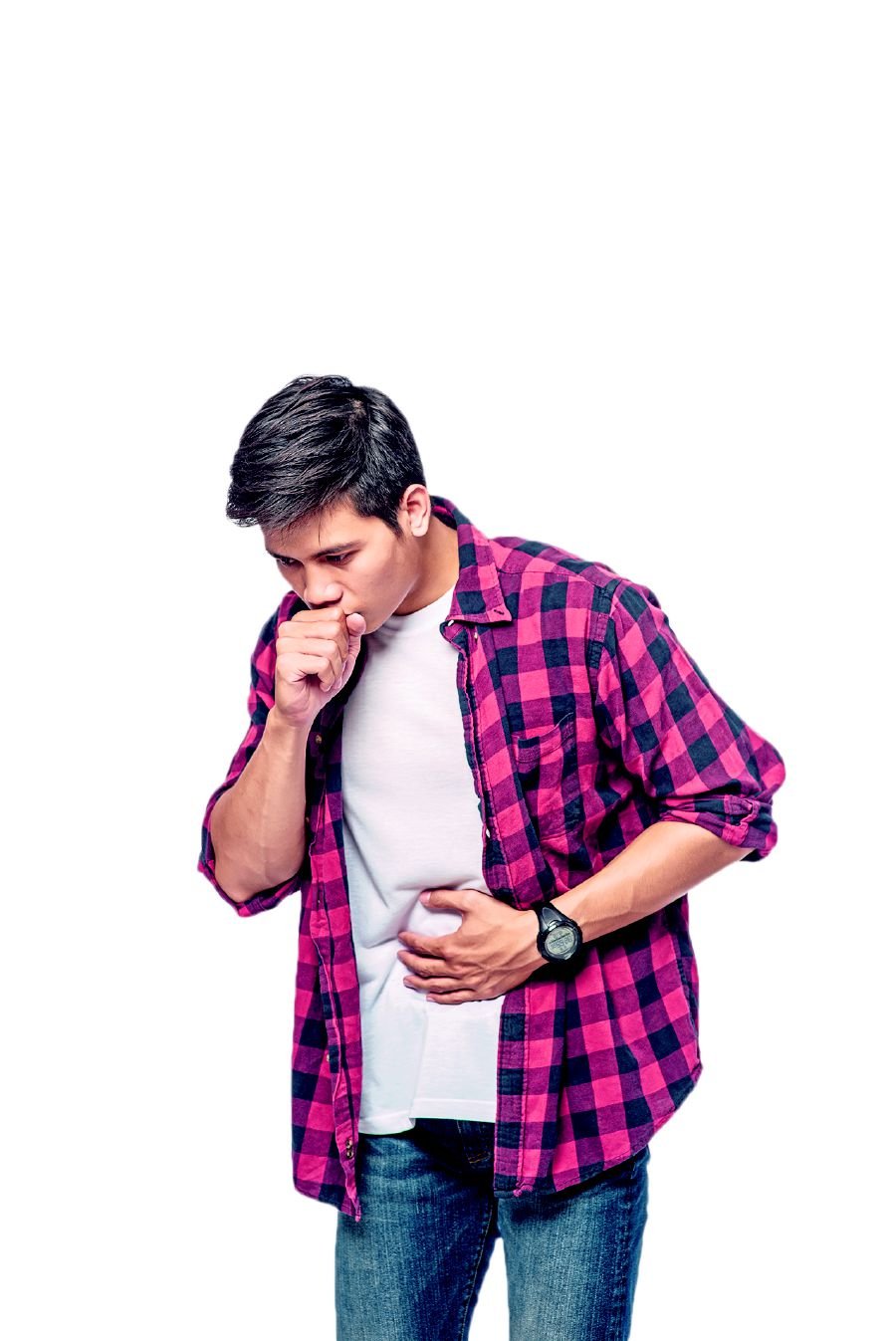
TREATMENT
THE mainstay of treatment for colorectal cancer, especially for stages one
to three is surgery. Those who are classified as stage three or high risk stage two may need chemotherapy as well.
For stage four, treatment is usually chemotherapy. If doctors feel that they can remove all the cancer in the colon and in the areas where it has spread, then surgery may also be offered.
SURVIVAL
If detected early, at stages one to three, survival is better.
The five year survival rate for colorectal cancer stands at:
Stages 1-2: 70-80 per cent
Stage 3: 60-70 per cent
Stage 4: 30 per cent
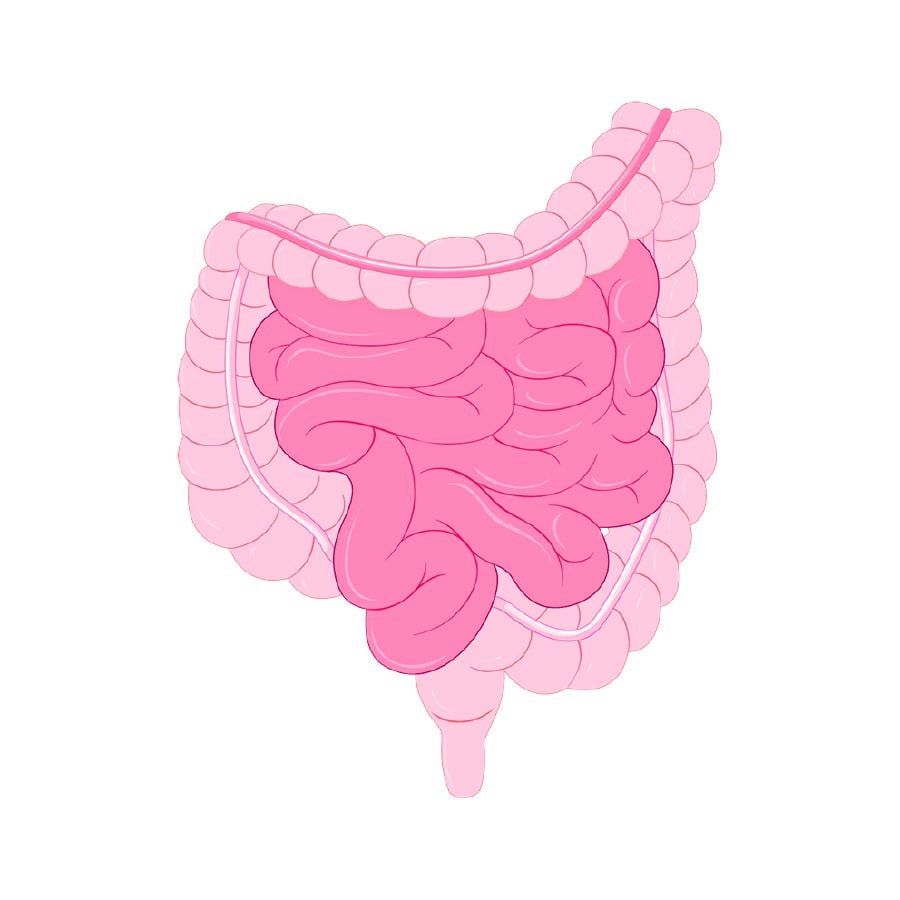
Support your productivity with enhanced devices from Shopee voucher code.




